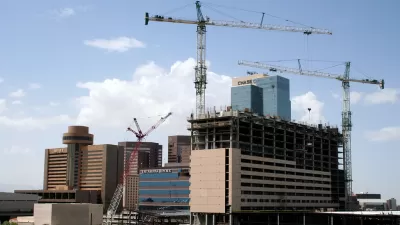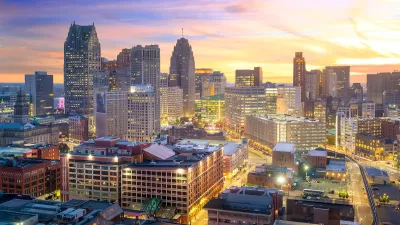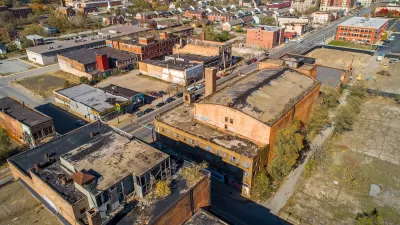While mayors of shrinking cities do all they can to buoy a discouraging metric, others ask whether population growth is all it's cracked up to be.

It makes sense to see leaders like Detroit mayor Mike Duggan focus heavily on population growth. As J.B. Wogan writes, "Population loss can become a symbol for other things people feel is going wrong in a city, such as rising poverty and unemployment rates, vacant and blighted housing, increased violent crime, the exit of pro sports franchises, racial segregation and police brutality."
People vote with their feet, so the story goes, and rising populations imply basic desirability. Wogan goes on, "Interestingly, it's the mayors of cities struggling to attract people who insist population numbers are the secret of success. The mayors of the fastest-growing cities tend to have a much different attitude about population gains."
The creed of growth-at-all-costs has its challengers. "Perhaps the leading voice in this contrarian club is Paul Gottlieb, an economist at Rutgers University. He has argued for decades not only that local elected officials should take a measured approach to growth, but that metropolitan areas with stable or slow-growing populations are likely to have greater economic prosperity." Wogan discusses similar views from Eben Fodor and Charles Marohn.
While residents of growing cities may not be automatically better off, interest groups like retailers, the real estate industry, and developers are often at hand to sing growth's praises. At the same time, analysis treating cities as separate entities from surrounding communities can oversimplify.
FULL STORY: Population Growth Means a City Is Thriving, or Does It?

Planetizen Federal Action Tracker
A weekly monitor of how Trump’s orders and actions are impacting planners and planning in America.

Maui's Vacation Rental Debate Turns Ugly
Verbal attacks, misinformation campaigns and fistfights plague a high-stakes debate to convert thousands of vacation rentals into long-term housing.

Restaurant Patios Were a Pandemic Win — Why Were They so Hard to Keep?
Social distancing requirements and changes in travel patterns prompted cities to pilot new uses for street and sidewalk space. Then it got complicated.

In California Battle of Housing vs. Environment, Housing Just Won
A new state law significantly limits the power of CEQA, an environmental review law that served as a powerful tool for blocking new development.

Boulder Eliminates Parking Minimums Citywide
Officials estimate the cost of building a single underground parking space at up to $100,000.

Orange County, Florida Adopts Largest US “Sprawl Repair” Code
The ‘Orange Code’ seeks to rectify decades of sprawl-inducing, car-oriented development.
Urban Design for Planners 1: Software Tools
This six-course series explores essential urban design concepts using open source software and equips planners with the tools they need to participate fully in the urban design process.
Planning for Universal Design
Learn the tools for implementing Universal Design in planning regulations.
Heyer Gruel & Associates PA
JM Goldson LLC
Custer County Colorado
City of Camden Redevelopment Agency
City of Astoria
Transportation Research & Education Center (TREC) at Portland State University
Jefferson Parish Government
Camden Redevelopment Agency
City of Claremont





























